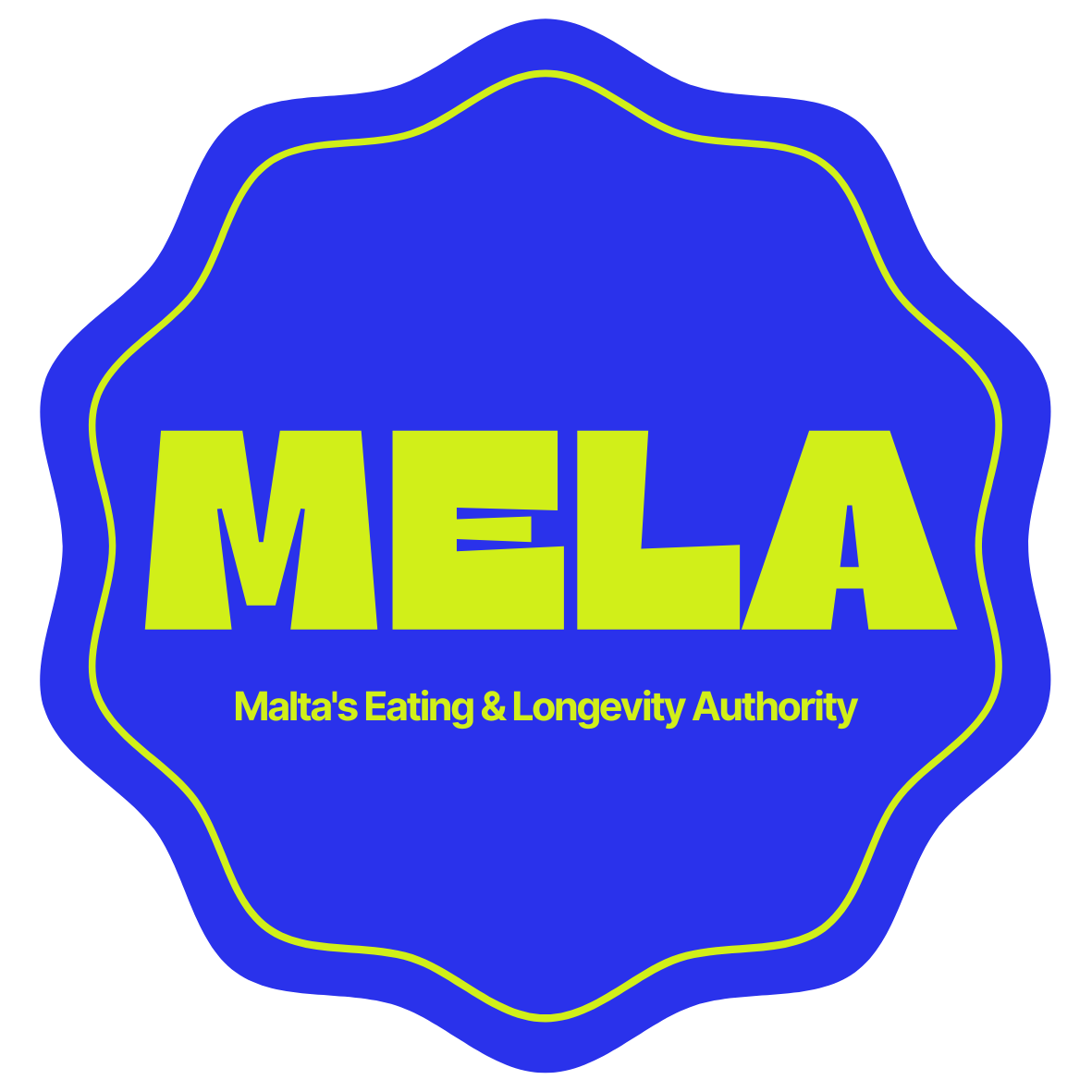Shocking truth: Over 200 food manufacturers in Malta are now pursuing gluten-free certification, but how many of their claims actually meet rigorous European standards? The demand for healthier, gluten-free products has skyrocketed, driven by a surge in celiac disease awareness and lifestyle choices. The future of dining in Malta is undergoing a quiet revolution fueled by regulated gluten-free certification, and here’s what you need to know to stay ahead of the curve, whether you’re a local foodie or a health-conscious tourist.
Why Gluten-Free Certification Matters More Than Ever
Malta’s gluten-free market is booming, a staggering 15-20% annual growth rate in certified gluten-free products is projected to continue through September 2026. This aligns perfectly with Europe’s growing trends, but it’s not just a passing phase. For food enthusiasts and tourists alike, here’s why gluten-free certification is a game-changer:
Health Necessity for Celiacs: Over 1.2% of the Maltese population has been medically diagnosed with celiac disease, where consuming gluten (even in trace amounts) could lead to severe health complications. Gluten-free certification helps ensure their safety.
Evolving Lifestyle Choices: A surprising 12% of Malta’s population actively seeks gluten-free products for health and wellness reasons, even without medical necessity. The gluten-free diet has become synonymous with a nutrient-rich, anti-inflammatory lifestyle.
Tourism-Driven Market Surge: With 68% of Maltese hotels and restaurants offering certified gluten-free options, this trend is fast becoming a staple in the local tourism scene, accommodating health-conscious international visitors.
What Does Gluten-Free Certification Involve?
Not all gluten-free labels are created equal. In Malta, products must adhere to EU standards that define gluten-free as containing less than 20 parts per million (ppm) of gluten. However, organizations like the Gluten-Free Certification Organization (GFCO) set even stricter thresholds of 10 ppm or lower, ensuring higher safety standards for consumers.
To secure certification, manufacturers undergo stringent processes:
- 80-Point Compliance Standards: Includes testing ingredients, sanitizing facilities, and ongoing oversight.
- Facility Inspections: Ensures cross-contamination risks are minimized.
- Annual Costs: Certification fees range from €2,000–€8,000 annually, varying by product complexity.
These rigorous measures not only build consumer trust but also enable products to command higher price points, 25-40% premiums in some cases.
The Hidden Health Crisis in Maltese Dining
Did you know that reliance on unverified gluten-free claims by manufacturers can mislead consumers? About 89% of Maltese consumers trust certified third-party labels over the manufacturer’s own claims. Considering the rigorous EU standards, this trust is well-placed.
Industry Insight: Discover more about why certifications matter from the Gluten-Free Certification Organization, a global leader in safe, gluten-free product assurance.
Gluten-Free Dining Revolution in Malta’s Tourism Scene
Malta’s vibrant culinary landscape isn’t just about pastizzi anymore. The gluten-free certification boom coincides perfectly with the island’s flourishing tourism industry. Hotels and restaurants are capitalizing on this trend, integrating certified gluten-free menus to attract international visitors looking for safe, quality dining options.
Top Recommendations for Certified Gluten-Free Dining in Malta
- Adura Restaurant in Mellieha
- Known for blending Mediterranean classics with gluten-free alternatives sourced locally.
- Signature dish: Gluten-free quinoa salad with halloumi and pomegranate molasses.
- TemptAsian (AX The Palace, Sliema)
- Offers high-quality Asian-inspired gluten-free cuisines through certified methods.
- Beachaven Roof Terrace
- Combines fresh coastal dishes with a commitment to certified gluten-free dining.
.png)
Check out other Top Fine Dining Restaurants in Mellieha.
Key Benefits of Consuming Certified Gluten-Free Products
For locals and tourists concerned about their long-term health, here are the scientific benefits of choosing certified gluten-free options:
- Digestive Health: Reducing gluten intake eases digestion for individuals with gluten sensitivity and can prevent bloating.
- Anti-Inflammatory Effects: Studies have shown gluten-free diets reduce inflammatory markers.
- Enhanced Nutrient Absorption: Certified products often contain more nutrient-dense ingredients as substitutes for wheat.
Learn more about why diet trends emphasize gluten-free living.
Gluten-Free Certification for Local Producers: The Economic Boost
The gluten-free craze isn’t just benefitting consumers, it’s uplifting Malta’s local producers. Over 200 manufacturers have adopted gluten-free standards to compete in this lucrative industry. Certified products command higher price points, not just locally but also in lucrative export markets.
Emerging Sectors: Pharmaceuticals and supplements are catching up fast. 45% of new launches in these sectors in Malta now include gluten-free variants.
.png)
Insider Tips for Consumers: Navigating the Gluten-Free Market in Malta
- Look for Certification Seals: Trust brands with legitimate third-party certification.
- Scrutinize Menus While Dining Out: Ask restaurants about their storage and preparation methods to avoid cross-contamination.
- Buy Local with Care: Support Maltese brands striving to meet stringent global standards. Check farmer’s markets or health sections in grocery stores for gluten-free certified products.
Common Myths (And Shocking Truths) About Gluten-Free Products
Myth 1: Gluten-Free Means Healthy
Truth: Not all gluten-free products are inherently healthier. Instead, choose whole foods or products that are gluten-free and nutrient-dense.
Myth 2: Certification Is a Marketing Gimmick
Truth: Certification ensures compliance and safety. It’s a necessity for consumers with medical conditions like celiac disease.
Myth 3: Gluten-Free Options Are Limited in Malta
Truth: From hotels to local stores, Malta now offers an ever-expanding variety of gluten-free-certified choices tailored to evolving consumer needs.
The Future of Gluten-Free Dining in Malta
The growth in gluten-free certification is just the tip of the iceberg. AI technologies and advanced testing methods are expected to revolutionize the certification process, enabling more affordable and accessible options on the market.
Want to explore game-changing gluten-free food trends in Malta? Read about MELA AI Index here.

FAQs About Gluten-Free Certification in Malta
How much does gluten-free certification cost in Malta?
Certification fees for gluten-free products range from €2,000 to €8,000 annually depending on product complexity.
Are certified gluten-free products safer than non-certified ones?
Yes, certified products are subjected to rigorous testing and monitoring to meet strict standards like 20 ppm or even 10 ppm thresholds.
Is eating gluten-free popular among tourists visiting Malta?
Absolutely! With 68% of hotels now catering to gluten-free dining, Malta is becoming an ideal destination for gluten-conscious travelers.
Closing Thought: Why Gluten-Free Certification Should Matter to You
Whether you’re a local who values your health or a tourist seeking memorable dining experiences in Malta, choosing gluten-free certified products ensures safety, taste, and quality. This isn’t just a fleeting trend, it’s the future of food safety and consumer trust. Want to start exploring gluten-free certified venues today? Visit Top Maltese Restaurants for your next outing!
Remember, when it comes to health and flavor, don’t settle for less.
Conclusion
Gluten-free certification is more than a label; it’s a promise of safety, quality, and transparency in Malta’s thriving culinary scene. Whether you’re indulging in exquisite Mediterranean dishes or scouting for healthy alternatives, certified gluten-free products cater to both medically essential needs and lifestyle choices. The island’s commitment to rigorous EU standards, coupled with its forward-thinking tourism industry, places Malta at the forefront of gluten-conscious dining destinations in Europe. This dining revolution not only supports local producers and elevates their international reputation but also transforms the dining experience for tourists and locals alike.
For a curated list of restaurants that embrace health and innovation, dive into the MELA AI Index. MELA AI takes Malta’s dining quality to the next level by spotlighting establishments that prioritize your health through certified meal offerings. With MELA-approved restaurants, discovering your next gluten-free gem has never been easier. After all, quality, health, and trust should always go hand in hand!
FAQs About Gluten-Free Certification and Dining in Malta
What does gluten-free certification mean, and why is it important in Malta?
Gluten-free certification ensures that food products meet strict standards for limiting gluten content, making them safe for individuals with celiac disease or gluten sensitivities. In Malta, this certification involves compliance with European Union (EU) regulations, which mandate less than 20 parts per million (ppm) of gluten in certified products. Some certification bodies, such as the Gluten-Free Certification Organization (GFCO), go even further, requiring gluten levels to be below 10 ppm.
Certification is critical as it builds trust, ensuring that individuals with gluten-related disorders can consume products without adverse health effects. With over 12% of Malta’s population seeking gluten-free products, either out of necessity (1.2% have celiac disease) or as a lifestyle choice, certification supports consumer safety while promoting the growing market for gluten-free options. Whether you’re a local or a tourist, opting for certified products eliminates the risk of relying on unverified claims.
How can tourists identify gluten-free certified options in Malta’s restaurants?
When dining in Malta, tourists should look for certification seals displayed on restaurant menus or inquire directly about the establishment’s gluten-free practices. Many hotels and restaurants now offer certified gluten-free options, with 68% of tourism-related businesses catering to gluten-conscious diners.
Top recommended venues like Adura Restaurant, TemptAsian, and Beachaven Roof Terrace pride themselves on proper certification and strict adherence to EU standards. Additionally, platforms like MELA AI – Malta Restaurants Directory are invaluable resources for finding certified gluten-free dining spots in Malta. The MELA Index highlights restaurants that prioritize safe and healthy dining, making your search easier and your meals safer.
What are the health benefits of consuming certified gluten-free products?
Certified gluten-free products offer numerous health benefits, particularly for individuals with gluten-related disorders. Key advantages include:
- Digestive Comfort: Gluten-free meals prevent bloating, discomfort, and malabsorption in those with sensitivities.
- Anti-Inflammatory Effects: Scientific studies show that going gluten-free can reduce markers of inflammation.
- Nutrient Absorption: Certified gluten-free products often use nutrient-dense ingredients to replace wheat, leading to better overall nutrition.
Even for non-celiac individuals, these products can support a low-inflammatory, health-conscious lifestyle, which is becoming increasingly popular in Malta.
How is Malta’s gluten-free certification process regulated?
Malta follows the EU’s gluten-free guidelines, which require products to contain less than 20 ppm of gluten. Certification bodies like GFCO further reduce this limit to 10 ppm for higher safety standards. Achieving certification involves an 80-point compliance process, which includes:
- Rigorously testing ingredients.
- Inspecting manufacturing facilities to prevent cross-contamination.
- Regular audits and product testing post-certification.
Brands in Malta seeking certification also pay annual fees ranging from €2,000 to €8,000, based on product complexity, but doing so can command a 25-40% premium price over non-certified options. The payoff in consumer trust is substantial, particularly with 89% of consumers prioritizing certified products.
Why is gluten-free dining a significant trend in Malta’s tourism sector?
Gluten-free dining is transforming Malta’s culinary landscape, making it a sought-after destination for health-conscious international visitors. With over 68% of hotels and restaurants offering dedicated gluten-free options, businesses have adapted to meet rising demand. Tourists with celiac disease or gluten sensitivities can now find safer dining options, avoiding traditional Mediterranean wheat-based staples.
For the best experience, consult resources like MELA AI – Malta Restaurants Directory, which promote restaurants excelling in gluten-free and health-conscious dining. The MELA Index guarantees credibility, whether you’re craving Mediterranean or Asian-inspired cuisines, there’s something for everyone in Malta’s certified dining ecosystem.
Do gluten-free products in Malta cost more than regular options?
Yes, gluten-free products often command higher price points, with certified options typically priced 25-40% higher than their regular counterparts. The additional cost stems from:
- Stricter ingredient sourcing protocols.
- Rigorous testing procedures.
- Certification fees, which can reach up to €8,000 annually for complex products.
For consumers, the premium cost is justified by the assurance of safety and adherence to EU or stricter global standards. Local manufacturers in Malta have embraced this industry shift, making certified options increasingly available in stores and fine-dining establishments.
What are some common myths about gluten-free certification?
Myth: Gluten-free automatically means healthier.
Truth: Not all gluten-free products are inherently healthier, always prioritize nutrient-dense options. Certified products simply ensure safety from gluten contamination.Myth: Certification is unnecessary if you trust the manufacturer.
Truth: Only third-party verification can confirm adherence to strict gluten-free standards, such as the 20 ppm EU threshold.Myth: Certified gluten-free products are rare in Malta.
Truth: Malta’s gluten-free market is growing at an annual rate of 15-20%. Today, over 200 manufacturers and a majority of restaurants emphasize gluten-free certifications.
What role does MELA AI play in promoting gluten-free dining in Malta?
MELA AI supports Malta’s transition to healthier dining by highlighting restaurants prioritizing health-conscious menus. Certified gluten-free dining is a cornerstone of their mission, reflected in the MELA Index, which rates restaurants based on menu quality, health-forward initiatives, and customer satisfaction.
Through tools like advanced restaurant filters, comprehensive reviews, and the coveted MELA sticker, the platform inspires both locals and tourists to select Malta’s most reliable gluten-free dining options. Restaurants benefit from increased consumer trust and visibility, making MELA AI a win-win for the food industry and its patrons. Learn more about MELA AI’s mission here.
What are some insider tips for navigating Malta’s gluten-free market?
- Seek Certification Seals: Don’t rely on vague “gluten-free” claims. Look for labels certified by organizations like GFCO or those meeting EU standards (<20 ppm).
- Ask Questions at Restaurants: Inquire about storage and preparation practices to avoid cross-contamination.
- Check Local Markets: Farmers’ markets or local sections in supermarkets often carry Malta’s certified gluten-free products.
- Use Technology: Rely on platforms like MELA AI to discover certified venues that align with your dietary needs.
By following these tips, you can enjoy an authentic and safe Maltese experience, free from dietary concerns.
What specific sectors in Malta are adopting gluten-free certification?
Beyond food manufacturing, the pharmaceutical and supplement industries are rapidly incorporating gluten-free standards. As of 2026, 45% of new product launches in Malta in these sectors include gluten-free variants. For instance:
- Supplements avoid wheat starch binders.
- Medicines specify gluten-free filler ingredients.
This highlights Malta’s growing commitment to safety across all consumer products, not just food. It’s a sign of the times: as health consciousness rises globally, gluten-free certification becomes a standard of excellence, not just a nice-to-have.
Check out another article that you might like:
About the Author
Violetta Bonenkamp, also known as MeanCEO, is an experienced startup founder with an impressive educational background including an MBA and four other higher education degrees. She has over 20 years of work experience across multiple countries, including 5 years as a solopreneur and serial entrepreneur. Throughout her startup experience she has applied for multiple startup grants at the EU level, in the Netherlands and Malta, and her startups received quite a few of those. She’s been living, studying and working in many countries around the globe and her extensive multicultural experience has influenced her immensely.
Violetta is a true multiple specialist who has built expertise in Linguistics, Education, Business Management, Blockchain, Entrepreneurship, Intellectual Property, Game Design, AI, SEO, Digital Marketing, cyber security and zero code automations. Her extensive educational journey includes a Master of Arts in Linguistics and Education, an Advanced Master in Linguistics from Belgium (2006-2007), an MBA from Blekinge Institute of Technology in Sweden (2006-2008), and an Erasmus Mundus joint program European Master of Higher Education from universities in Norway, Finland, and Portugal (2009).
She is the founder of Fe/male Switch, a startup game that encourages women to enter STEM fields, and also leads CADChain, and multiple other projects like the Directory of 1,000 Startup Cities with a proprietary MeanCEO Index that ranks cities for female entrepreneurs. Violetta created the “gamepreneurship” methodology, which forms the scientific basis of her startup game. She also builds a lot of SEO tools for startups. Her achievements include being named one of the top 100 women in Europe by EU Startups in 2022 and being nominated for Impact Person of the year at the Dutch Blockchain Week. She is an author with Sifted and a speaker at different Universities. Recently she published a book on Startup Idea Validation the right way: from zero to first customers and beyond, launched a Directory of 1,500+ websites for startups to list themselves in order to gain traction and build backlinks and is building MELA AI to help local restaurants in Malta get more visibility online.
For the past several years Violetta has been living between the Netherlands and Malta, while also regularly traveling to different destinations around the globe, usually due to her entrepreneurial activities. This has led her to start writing about different locations and amenities from the POV of an entrepreneur. Here’s her recent article about the best hotels in Italy to work from.



